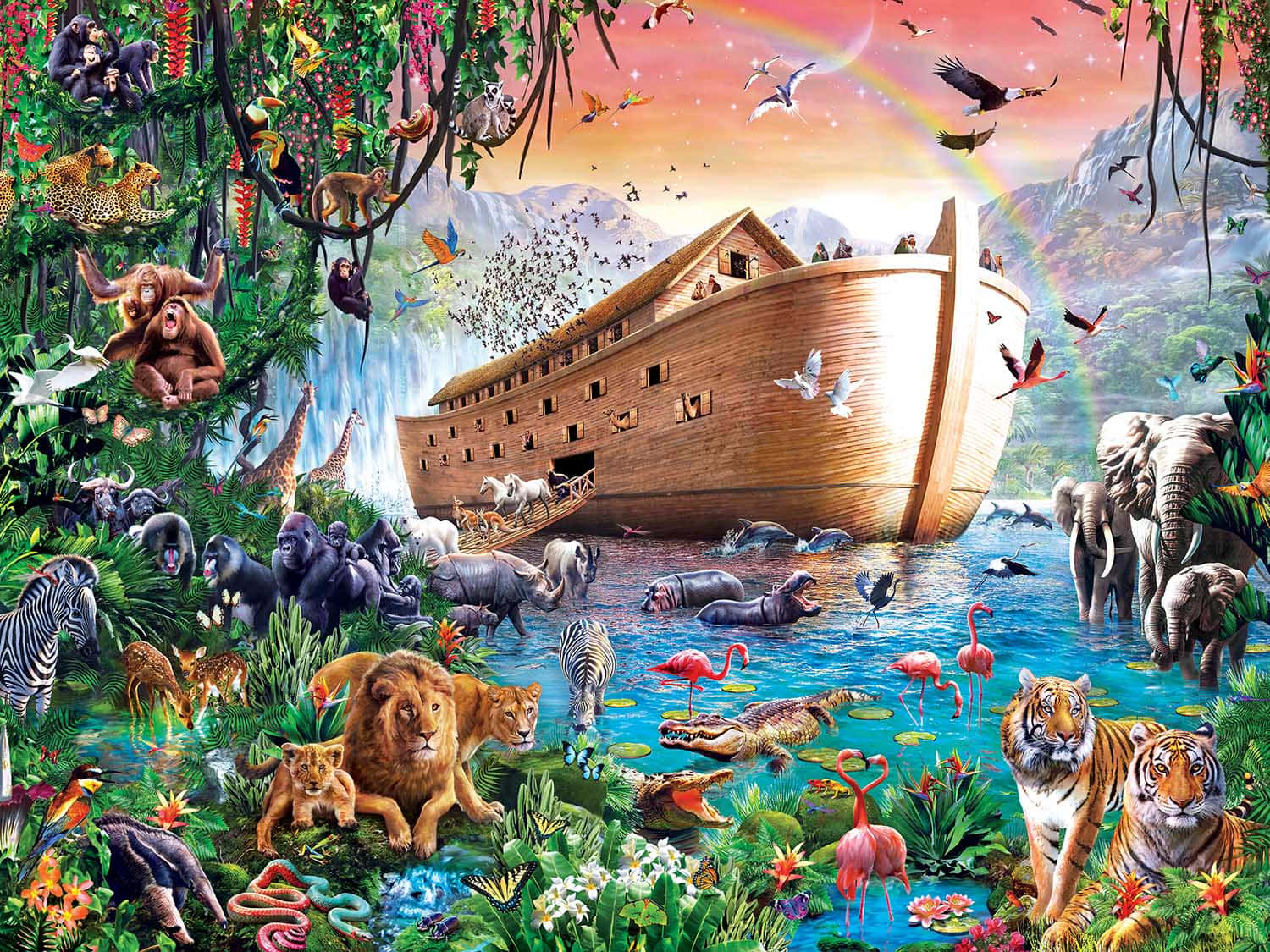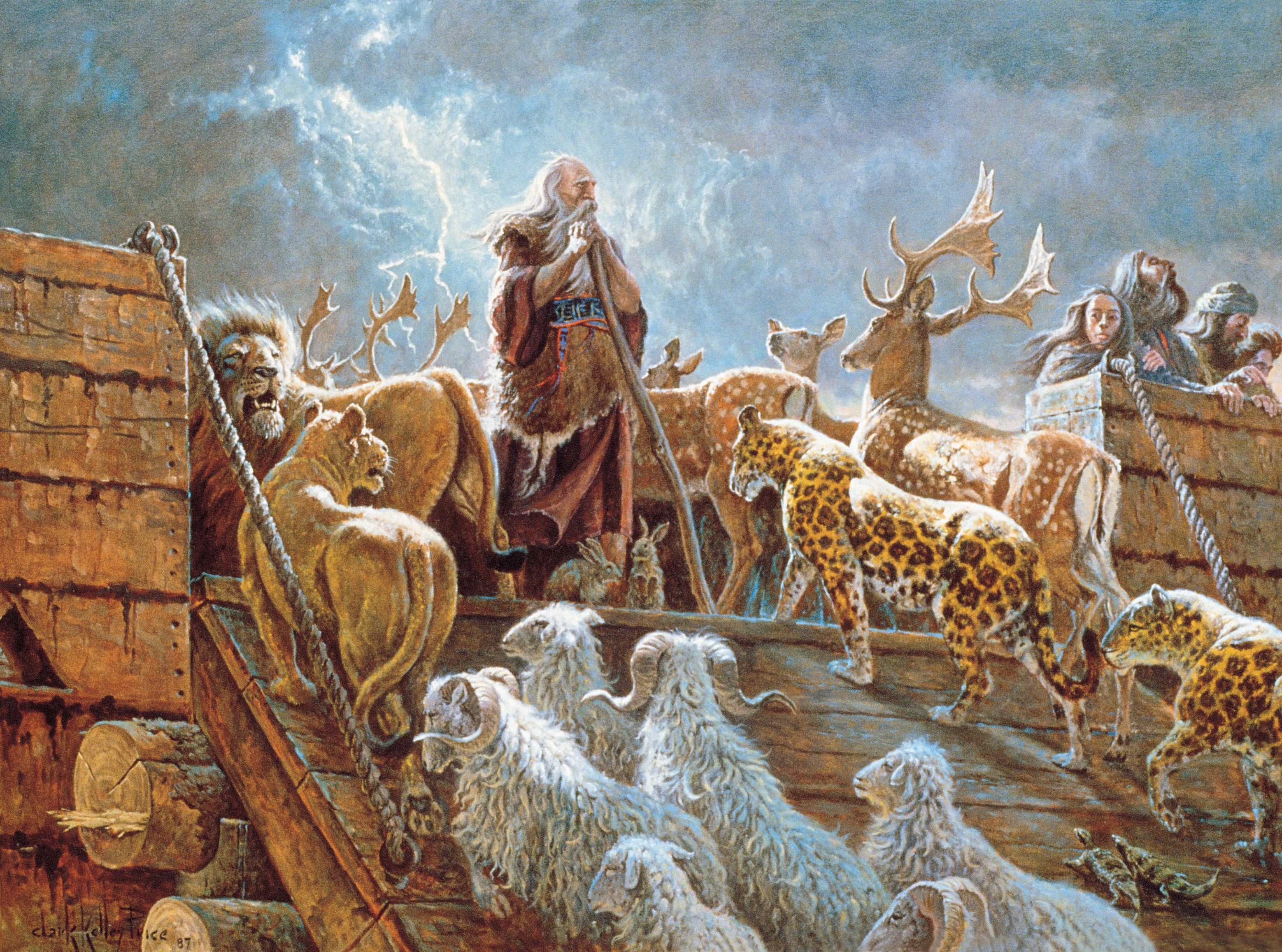Noah Fearnley Married: Exploring The Ancient Narrative Of Noah's Family Life
When you hear the phrase "Noah Fearnley married," it's natural to wonder about the person behind the name, perhaps looking for news about a contemporary figure or a celebrity. However, the information we have, based on the text provided, actually points us to a deeply significant figure from ancient times: Noah, the hero of the biblical flood story. This article will explore what we know about this incredible individual and his family, drawing directly from the historical accounts that describe his life and legacy. So, if you're curious about Noah's marital status or family, this is that, we're going to look at the foundational stories.
Noah, you see, is a central figure in the Bible, particularly known for his very important role in the flood narrative found in the ancient book of Genesis. He is described as a truly righteous man, chosen by God to survive a momentous event. His story, in a way, is one of hope and renewal, and it often sparks a lot of interest in his personal life, including his family connections.
Many people are, you know, curious about the family lives of significant historical figures, and Noah is certainly one of them. The account of Noah and his family is a cornerstone of early biblical history, detailing not just his personal journey but also the continuation of humanity through his descendants. We'll be looking closely at these ancient records to piece together the narrative of Noah and his kin.
Table of Contents
- Understanding the Query: Noah Fearnley Married
- The Biblical Noah: A Righteous Figure
- Noah and His Family: A Foundation of Lineage
- Noah's Pivotal Role in Ancient Narratives
- The Deeper Meaning of Noah's Story
- Lessons from Noah's Life: Obedience and Example
- Noah's Story in Modern Interpretations
- Common Questions About Noah's Story
The Biblical Noah: A Righteous Figure
Noah, in the ancient writings, was an obedient servant of God. He, in some respects, found favor with God amidst a world that was, you know, quite sinful. This is the account of Noah and his family, a narrative that stands out. Noah was a righteous man, the only blameless person living on Earth at that time, and he walked in close fellowship with God. It's almost as if he had a unique connection, a very special bond with the divine, which set him apart from everyone else around him. His moral standing was, arguably, unmatched in his generation.
He was, basically, a beacon of integrity in a time when, it seems, moral decline was quite widespread. The ancient texts make it very clear that his character was a defining aspect of his identity. This righteousness wasn't just a fleeting thing; it was a consistent way of life, a deep commitment that shaped his every action. So, his story really begins with this fundamental aspect of who he was: a man truly devoted to a higher purpose.
The text tells us he was blameless, which is a rather significant descriptor. It suggests a life lived with integrity, free from the pervasive corruption that marked the era. This unique quality, you know, made him the chosen one for a monumental task. His fellowship with God was not merely casual; it was a close, personal relationship, a continuous walk that guided his path. This deep connection, in a way, allowed him to hear and follow divine instructions when others might not have been able to.
His story, you see, begins in Genesis 6 and consists of three main elements. First, there's the evil of the Earth, a description of the widespread wickedness that prompted the divine response. Then, there's Noah's divine selection and the monumental task given to him. Finally, there's the account of Noah's descendants, who would, in a way, repopulate the world. This framing helps us understand the vast scope of his role and the reasons behind his unique calling.
Personal Details and Life Highlights of Biblical Noah
When we look for details about Noah, especially in connection to queries like "Noah Fearnley married," it's important to remember we're drawing from ancient texts. Here are some key points about the biblical Noah, as found in our provided information:
| Role | Hero of the biblical flood story, originator of vineyard cultivation, father of Shem, Ham, and Japheth. |
| Character | Righteous man, blameless, walked in close fellowship with God, obedient servant. |
| Lineage | Part of the godly line of Seth, bridging lineage from Adam. |
| Known For | Divine selection to survive the flood, central figure in Genesis flood narrative. |
| Family | Had a family, father of Shem, Ham, and Japheth. |
This table, you know, gives us a quick look at the kind of person Noah was, according to the ancient writings. He was a figure of great importance, not just for his actions during the flood, but also for his character and his role in the lineage of humanity. It really highlights how central he was to the unfolding narrative of early human history.
Noah and His Family: A Foundation of Lineage
The text makes it clear: "this is the account of Noah and his family." This statement is very important, as it immediately tells us that Noah was not alone. He was a family man, a father. The story is not just about an individual but about a unit, a household that was preserved. This family aspect is, you know, pretty central to his entire narrative. It’s not just about Noah, but about those connected to him, those who shared his journey and, in a way, his destiny.
Noah was the father of Shem, Ham, and Japheth. This detail is, you know, quite significant. It means he was married, as one cannot be a father without a partner. While the ancient texts don't explicitly name his wife, her presence is certainly implied through the existence of their children. So, when people wonder about "Noah Fearnley married," it leads us to consider this foundational aspect of Noah's life: his family, which included his wife and sons. His family was, in fact, integral to the divine plan, as they were the ones who would continue the human line after the great flood.
The mention of his sons also points to Noah as the "originator of vineyard cultivation." This is a fascinating detail, suggesting a post-flood life that involved agriculture and new beginnings. It shows us that after the immense challenge of the flood, Noah and his family settled into a new way of life, contributing to the development of human civilization. This aspect of his story, you know, really adds another layer to his character, showing him as someone who adapted and innovated.
Noah's descendants are also mentioned in the list of the nations of the world, a detail that highlights the far-reaching impact of his family. From his three sons came the various peoples and nations that populated the Earth. This makes his family, in a way, the very root of all human lineage after the flood. So, when we consider Noah's family, we are, you know, basically looking at the beginning of all human societies as we know them from these ancient accounts. It’s a pretty big deal, actually.
The story of Noah and his family teaches lessons about obedience and setting a godly example in the midst of a godless society. His family, you see, followed his lead, trusting in the divine instructions. This collective obedience was, in some respects, just as important as Noah's individual righteousness. It shows the power of a family unit working together, united in faith and purpose. This is that, a strong example for anyone.
Noah's Pivotal Role in Ancient Narratives
Noah appears at a pivotal point in the biblical narrative, bridging a lineage from Adam through Seth and culminating in his own generation. He was part of the godly line of Seth, of whom it was said, "at that time men began to call upon the name of the Lord" (Genesis 4:26). This connection places Noah within a specific spiritual heritage, a line of individuals who maintained a connection with the divine amidst a world that was, you know, seemingly losing its way. It's a very important part of his background, actually.
His story, you know, represents a major turning point in human history, according to these ancient texts. Before Noah, the world was described as being filled with great evil. His role, then, was to preserve life, to carry humanity and the animal kingdom through a catastrophic event, and to restart civilization. This is that, a truly monumental task, one that required immense faith and dedication. He was, in a way, chosen for this specific, world-altering mission.
Noah was the result of generational faithfulness, a culmination of a lineage that had, in some respects, sought to call upon the name of the Lord. This background, you see, provides context for why he was chosen. It wasn't just a random selection; it was part of a larger divine plan that had been unfolding through generations. So, his appearance at this moment was, you know, strategically important, marking a new chapter for humanity. It shows how past actions can influence future outcomes, too.
He is the hero of the biblical flood story in the Old Testament book of Genesis. This narrative is, you know, perhaps the most famous part of his story, detailing the construction of the ark and the survival of his family and the animals. This event, in a way, reshaped the entire world, leading to a new beginning. His role here is, very, very central, making him a figure of immense historical and theological significance.
The Deeper Meaning of Noah's Story
When we discover the biblical meaning of Noah, we are, you know, delving into themes of hope, renewal, and unwavering faith. His story, in a way, is a powerful reminder that even in the darkest times, there can be a path to a new beginning. This article explores Noah's role as a righteous figure, his divine selection, and the profound lessons embedded in his journey. It's a narrative that, arguably, resonates with many people even today.
Noah's unwavering faith is, you know, a particularly striking aspect of his character. He built an ark, a truly massive vessel, based solely on divine instruction, in a world that had never seen such a thing, and probably didn't even understand the concept of a global flood. This act of faith, in some respects, speaks volumes about his trust and obedience. It wasn't an easy task, but he persisted, believing in the word he had received. So, his story really underscores the importance of belief in the face of the unknown.
The theme of renewal is, you know, very prominent in Noah's story. After the flood, the world was, basically, cleansed, offering a fresh start for humanity and all living creatures. Noah and his family were the progenitors of this new world, symbolizing a chance for humanity to begin again, guided by a covenant with God. This aspect of his narrative provides, in a way, a message of optimism, showing that even after great destruction, there can be a rebirth.
His story, too, highlights the concept of divine selection. Noah was chosen not because of any special power, but because of his righteousness and his willingness to obey. This selection emphasizes that, you know, even one person's faithfulness can have a profound impact on the course of history. It's a powerful idea, really, that a single individual's character can be so pivotal. This is that, a lesson for all time.

Download "Noah's Ark Ready To Sail Into The Stormy Seas" | Wallpapers.com

Exploring Noah's Ark: A Study Of Genesis 6:9-22

Noah's ark latest photos - wordsgeser